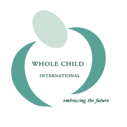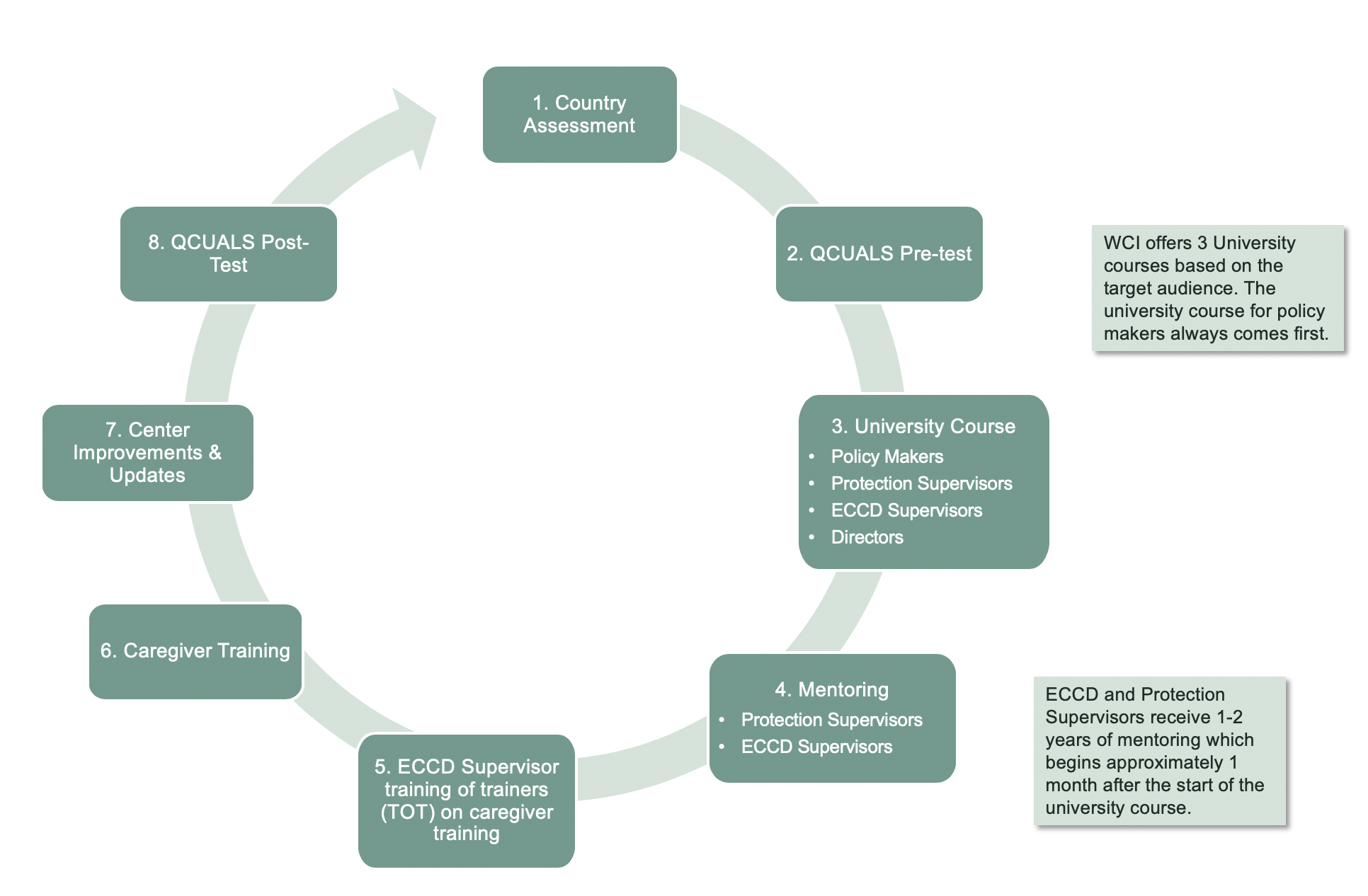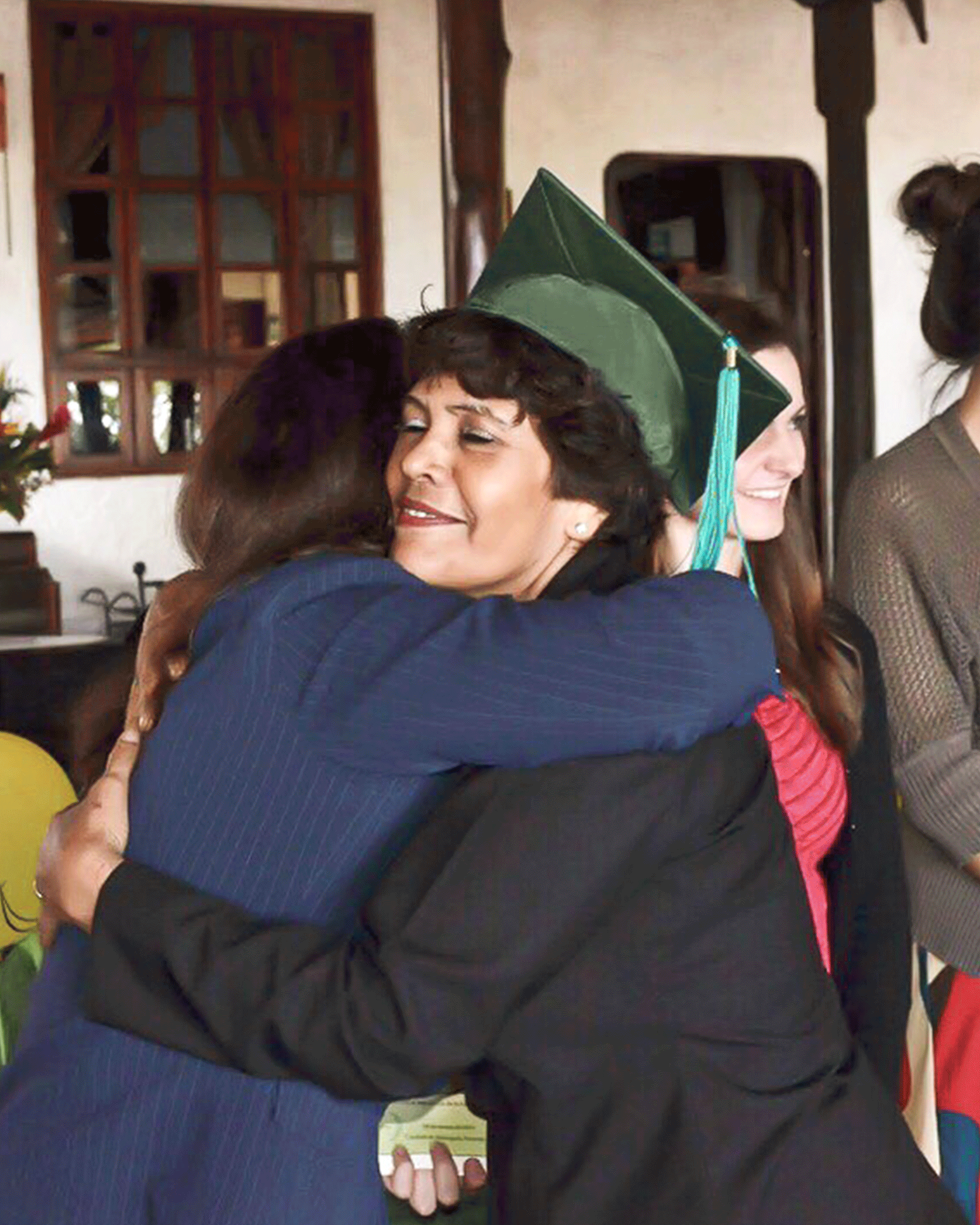
Our Program
Our Program
Country Assessment
Whole Child International is interested in creating a standard tool that can be utilized by governments to conduct an initial assessment of their readiness to go through a care reform process on a national or sub-national level. This tool will identify the necessary components of the care sector that is rooted in best practice where children are supported in community and family-based care. Governments will be able to use this tool to prioritize next steps in the care reform process and ensure that a holistic, robust child protection system can be developed.
2. QCUALS Pre-test
Whole Child International developed its flagship measurement tool, the Whole Child International Quality Childcare Universal Assessment for Limited-Resource Settings (WCI-QCUALS) with the goal of creating a free-to-use, cross-cutting monitoring and evaluation tool that will assess overall quality of childcare across the full spectrum of care settings.
It was originally designed to measure all factors in a care center that would impact children’s well-being, health, and development (physical, cognitive, linguistic, and social-emotional). As part of its programming model, Whole Child now uses this tool to establish a baseline for quality of care when it begins its work.
3. University Course
Whole Child International addresses the acute human and technical resource shortage of qualified government supervisors, social workers, policymakers, and other key personnel by developing, implementing, and institutionalizing a series of accredited university courses.
These courses develop highly trained professionals that can create, implement, and support high-quality, relationship-based childcare policies and practices that improve children’s development and well-being.
Whole Child offers two types of courses:
1. The policymaker course involves increasing understanding of judges, ministers, and lawyers on child protection issues from a rights-based, relationship-centered standpoint. This is so that they can make the best decisions regarding the placement and follow-up of children and youth in the child protection system.
2. The course for child protection and early-childhood technical staff is designed to facilitate increased awareness and adoption of best practices in childcare.
4. Mentoring
Whole Child understands that training to increase knowledge is only the first step. In order to work towards sustainable change Whole Child works to ensure that those who have participated in the various training programs internalize and apply what they have learned.
Whole Child provides direct personalized mentoring to technical supervisors within the government. The mentoring lasts for approximately one-and-a-half to two years after the training. Each mentee identifies his/her areas for growth and learning goals based on what s/he has learned from the university course, WCI-QCUALS application, and other experience. Through this mentoring process, mentoring to directors and caregivers is modeled to the technical supervisors by Whole Child staff. The mentee, who is a Whole Child trained, government employee, becomes a mentor to provide immediate, positive, and timely feedback to center directors, caregivers.
5. Caregiver Training
For caregivers and other residential and childcare center staff who work day-to-day with children, we provide training and mentoring in the application of optimal childcare practices.
Designed for staff with a range of educational backgrounds and levels of literacy, our caregiver training takes place once a month for nine months and is complemented by hands-on technical training and sustained mentoring for all caregivers who are directly responsible for the care of children.
The caregiver training is held one day (8 hours) per month, for nine months.
The caregiver training course is supported by four training volumes:
A. Caregiver Training: Best Practices in Early Childhood Group Care in Limited-Resource Settings*
B. Guide for Direct Care Staff: Better Practices for Group Childcare
C. Guide for Mini-Trainings for Caregivers: Best Practices in Childcare in Limited-Resource Settings
D. A Quick Guide to Evidence-Based Best Practices in Early-Childhood Group Care
6. Center Improvements & Updates
As part of the training to caregivers, technical staff, and policymakers, Whole Child works with center staff to restructure the physical space to ensure it supports relationship centered care. Whole Child provides materials such as developmentally appropriate furniture and other supportive items to help create an environment conducive to responsive respectful care that promotes child development. This material improvement is not a remodel of the center, but rather an opportunity to educate center directors and other staff on how the environment can support improved interactions and child wellbeing. These items will vary from center to center informed by the initial assessment and the caregiver training process. The proposed activity will update and improve the care environments so they are more home-like settings.
7. QCUALS Post-test
In order to measure the effectiveness of its interventions, Whole Child conducts a QCUALS post-test after the intervention is complete. This way, Whole Child can objectively measure and document the changes in the quality of child care using the results of the QCUALS pre-test and post-test. Based on the results, Whole Child works with its partners to make any changes or adjustments as necessary to the program and activities. The QCUALS post-test can be used as both a monitoring and evaluation tool depending on when, and how often, it is used.





